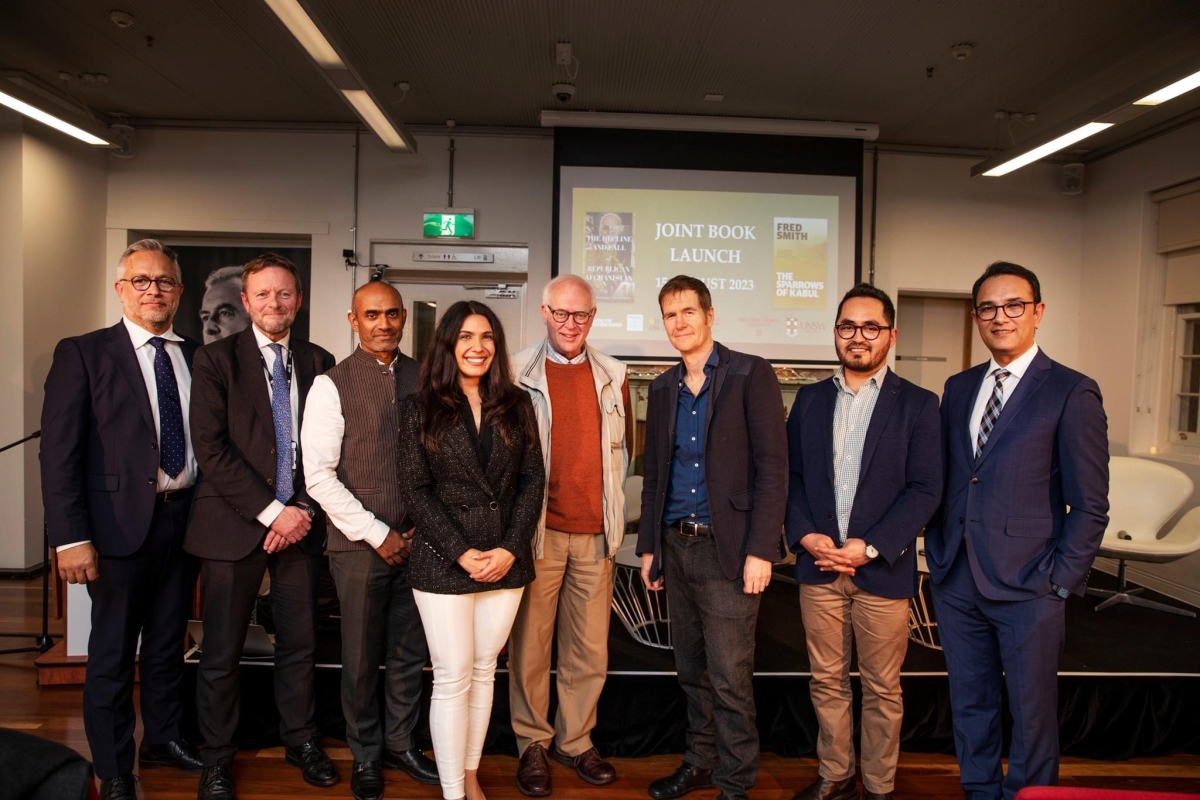Concluding Remarks for the Launch of "The Decline and Fall of Republican in Afghanistan" and "The Sparrows of Kabul" Performance
Whitlam Institute,15 August 2023
Ladies and gentlemen,
As we wrap up today, I'd like to extend my heartfelt gratitude to our colleagues and friends from both prestigious universities: University of New South Wales and Western Sydney University, along with the Centre for Western Sydney, the Institute for Global Development and the Whitlam Institute.
Your concerted efforts and partnership have orchestrated this timely and enlightening event, as we poignantly mark the sombre second anniversary of Taliban's forced takeover of Afghanistan.
This occasion allows us to not just remember the events of the past but to also contemplate the future, collectively.
The book by Shuja Jamal and William Maley, “The Decline and Fall of Republican in Afghanistan,” is not just a meticulous investigation of a nation's downfall, but it also stands as a testimonial to the depth of human endeavour and, at times, its vulnerabilities.
Through its detailed analysis, we're reminded of the many forces at play, from international power dynamics, the significant roles played by neighbouring countries, to the internal strife within Afghanistan.
Most importantly, this book sends out a clarion call, urging us to understand that the Afghan Republic did not merely fade away - it was, in many senses, betrayed.
It is said that while history provides the facts, art provides the feelings.
And this sentiment could not be more resonant than in "The Sparrows of Kabul."
Fred Smith, through his music, has not only provided a chronicle of Australia's involvement in Afghanistan, but has also brought to life, the raw emotions, challenges, and complexities faced by those on the ground.
These finely observed snapshots — whether they're tales of dust-filled days in Uruzgan or the heart-wrenching final moments of the Kabul evacuation — reveal an Afghanistan that many of us have never seen or felt.
They remind us of the human cost, the sacrifices made, and the lives changed forever.
I'd also like to acknowledge the expertise of Leanne Smith, the Chief Executive of the Australian Human Rights Commission.
Her esteemed presence not only amplified the importance of our discourse, but also ensured that our conversation is both: grounded in respect, and directed towards a deeper understanding.
Ladies and Gentlemen:
This year, the world commemorates the 75th anniversary of the Universal Declaration of Human Rights. It is a landmark achievement in human history. However, we are confronted with starkly contrasting realities in Afghanistan.
Picture this: A violent extremist group, seizing a strategically located United Nations member state, stands in stark opposition by entirely discarding the fundamental principles of the U.N. Charter, the Universal Declaration of Human Rights, and nearly all major international treaties and conventions.
Our discussions this evening emphasized the critical need to grasp the context and complexities within these contrasting global narratives. And it just held in the perfect location: The Whitlam institute.
The Whitlam Institute has always been at the forefront of fostering conversations that drive societal understanding and change.
Today, as we remember Afghanistan, it's essential to embrace the complexity of international responses, recognizing the intricate interplay between security, development, and humanitarian engagement.
In these challenging times, I urge all of you to use these stories and insights as catalysts. Let them guide our actions, shape our conversations, and inspire a brighter, more informed future.
And as we reflect upon our role and the choices before us, let us remember the profound words of late Prime Minister Gough Whitlam, as once he said:
"The decision we will make for our country on 2 December is a choice between the past and the future, between the habits and fears of the past, and the demands and opportunities of the future. There are moments in history, when the whole fate and future of nations can be decided by a single decision. For Australia, this is such a time."
Taking inspiration from Whitlam's insights, we recognize that our understanding and response to the events in Afghanistan are also a testament to our choices. As we deliberate on the past and future of Afghanistan, we must ask ourselves: Will we be trapped by the habits and fears of yesterday, or will we embrace the opportunities to foster a brighter, more understanding tomorrow? The weight of this moment in history demands our decisive, united and compassionate action.
Ladies and gentlemen,
In our continuous quest for understanding, we owe a deep debt of gratitude to both Shuja Jamal and Prof. William Maley.
Their insightful work shines a light on this dark chapter in history, presenting us with clarity and fresh perspective.
Equally, our appreciation flows deeply for Fred Smith, whose words and melodies have masterfully painted a touching tapestry of Afghanistan's human experience.
Furthermore, I'd like to extend our profound thanks to the panellists and speakers who have graced this event with their insights, enriching our discussions and deepening our understanding.
And to you, our attentive audience, your presence and engagement amplify the significance of today's event. Your willingness to engage, to learn, and to empathize is a testament to the importance of these conversations.
I was truly honoured to make these remarks with such esteemed individuals and with all of you.
Thank you and very good evening.
